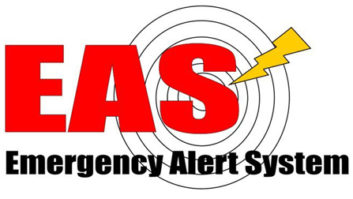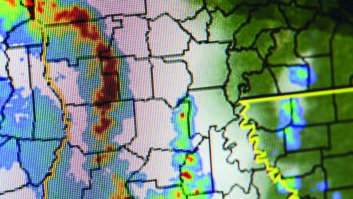Sirius XM has obtained a waiver from the FCC to use compression technology on four of its audio channels, even though this means EAS header codes on those channels won’t activate downstream decoders monitoring such alert transmissions. But the FCC says the waiver will do no harm.
The commission’s Public Safety and Homeland Security Bureau granted the waiver to Sirius XM to authorize transmission of certain truncated Emergency Alert System alert data on its four Instant Traffic, Weather and Alert channels.
[Read: Stations Prep for National EAS Test]
The commission said the waiver will have no impact on the EAS’s functionality or operations, in part because no EAS participant is currently authorized to monitor those channels, and because keeping even compressed EAS alerts on the Instant Traffic, Weather and Alert channels serves the public interest.
The ruling is a technical and legalistic one that will be of interest mostly to alerting experts and engineers who follow the nuances of EAS infrastructure. But for them it’s fun reading, including the footnotes. Find it here.
“National EAS alerts will continue to be transmitted over all of Sirius XM’s channels, including the four Instant Traffic, Weather and Alert channels using compression, and will be audible to Sirius XM’s subscribers (and nonsubscribers on its non-subscriber channels),” the commission emphasized, adding that the satellite system will continue to serve as a PEP station, initiating national EAS alerts encoded pursuant to the EAS Protocol on its other channels, including free preview channels that are authorized as monitoring sources for alerts.
[Subscribe to our newsletter and get it delivered right to your inbox.]










